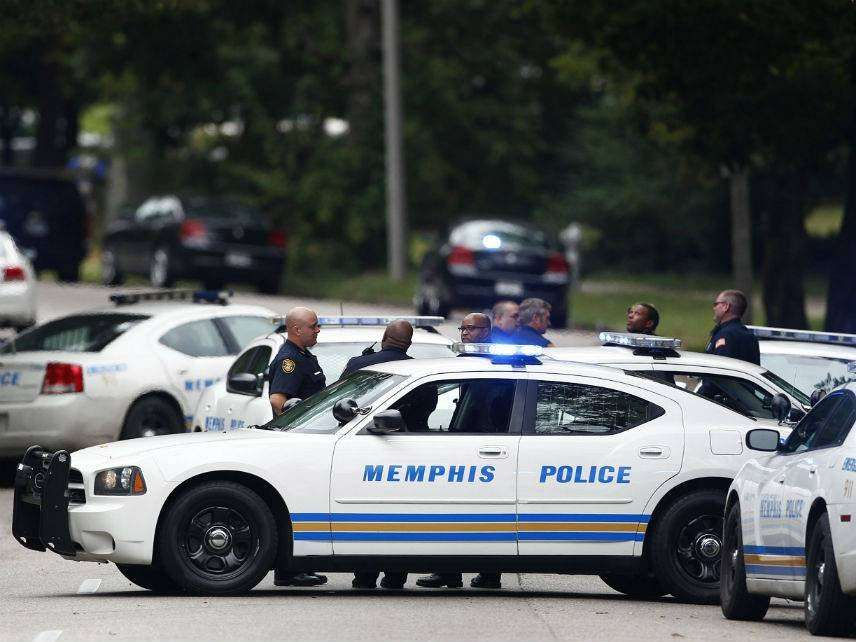Federal Judge Says Tennessee Shouldn't Punish Poor Drivers for Being Poor
- OurStudio

- Oct 18, 2018
- 3 min read

Jim Weber/ZUMA Press/Newscom
Nearly 300,000 Tennesseans could get back on the road after a federal judge ruled yesterday the state can't suspend driver's licenses over traffic tickets that drivers aren't able to afford.
The ruling is a win for advocates who say a law permitting the state to take away people's driving privileges if they don't pay traffic fines discriminates against poor people.
Judge Aleta Trauger of the U.S. District Court for the Middle District of Tennessee agreed. In her written opinion, she said "the lack of an indigence exception has resulted in numerous poor Tennesseans with suspensions that they cannot overcome," according to The Tennessean. This has led to "both constitutional and material injuries" for poor residents that "are, or are likely to be, irreparable," she wrote.
Trauger was ruling on a 2017 class action lawsuit filed by seveal legal groups behalf of 291,000 Tennesseans who they say have had their licenses suspended over unpaid traffic fines. As Reason's C.J. Ciaramella reported, Trauger issued a temporary restraining order last October restoring two of those residents' licenses. At the time, she wrote that "taking an individual's driver's license away to try to make her more likely to pay a fine" is like "using a shotgun to treat a broken arm. There is no rational basis for that."
Trauger's latest ruling does not decide the lawsuit, but it does grant a preliminary injunction to prevent the state from suspending licenses while the suit is ongoing. Residents whose licenses are currently suspended due to unpaid traffic fines must contact the state if they want their driving privileges back, The Tennessean reports. In a statement, Tennessee's Department of Safety and Homeland Security said "it will stop suspensions of licenses, as the Court requires, and it will promptly review the balance of the order to determine the appropriate next steps."
The original lawsuit was filed last September by attorneys from Civil Rights Corps, the National Center for Law and Economic Justice, Just City, and the law firm Baker, Donelson, Bearman, Caldwell & Berkowitz. Several of those groups celebrated Trauger's ruling yesterday.
"With this ruling, people will be able to go to work, see their families and friends, get to the grocery store and the doctor's office, and do all of the things that many of us take for granted and that give life meaning," Civil Rights Corps Attorney Tara Mikkilineni said in a statement.
Just City Executive Director Josh Spickler hailed the impact the ruling would have on "nearly 300,000 Tennesseans" with suspended licenses. "They say, 'I wasn't able to pay the ticket, and I had to work and didn't go to court,' and a $75 ticket turns into a $200 judgement," he told WMC. "Do you pay rent the next month? Or do you pay the judgement? And it goes from there."
The ruling came three months after Trauger blocked Tennessee's practice of suspending licenses over unpaid court fines that drivers can't afford. "It's sort of the next logical step," Spickler, who worked on both cases, told The Tennessean of yesterday's ruling. "It's like an exclamation point on the previous order."
The state of Tennessee is appealing Trauger's decision on court fines. Whether or not it will do so for her most recent ruling is likely up to the state's next governor.
This issue received national attention following the 2014 police shooting of Michael Brown in Ferguson, Missouri. As Ciaramella noted, Ferguson and other cities have used court and traffic fines to generate revenue. But civil liberties advocates argue this traps poor people in a cycle of poverty, since taking away their ability to drive means they can't make money in the first place.
The Washington Post reported in May that more than seven million people nationwide have had their licenses suspended over unpaid debts related to traffic offenses.
In Virginia, officials tried to reform the system so poor people wouldn't lose their licenses just because they were poor. But as Ciaramella reported in January, almost one million Virginians still had suspended licenses for unpaid court debts.
One such Virginian, Robert Taylor, explained the cycle perfectly. "It's kind of like my feet are cut off. I can't get anywhere," he told Ciaramella. "I want a job. I'll see a job, and when I find one I'm qualified for—I know I could run that store so well—but I can't get to it."




Comments